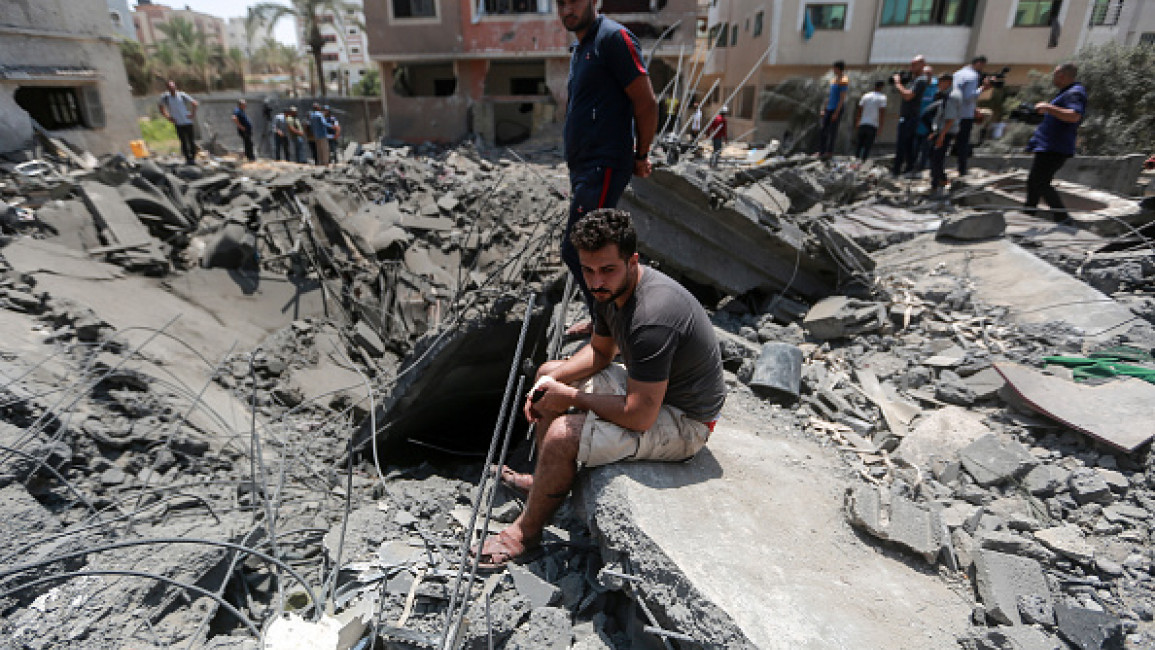Palestinians protest in a rare public march against difficult living conditions under Hamas-ruled Gaza
On Sunday, 30 July, thousands of Palestinians in the besieged coastal enclave joined a rare march against Hamas, an Islamist group ruling the Gaza Strip, demanding their customary human rights.
Taking place in the cities of Gaza, Rafah, Khan Younis as well as Jabalia refugee camp, the protestors chanted against their hard living amid poverty, unemployment, and power outages.
The protestors carried slogans written "We need to live in dignity," "We need electricity, water and work," "We have the right to work and feed our families," and "We want to elect our own government."
Mohammed, one of the protestors, said to The New Arab, "We are tired of living in humiliation for years to come. The authorities in Gaza do not care about our suffering and do not want to find radical solutions to the problems that we have been suffering from for years."
"Does Hamas want us to remain silent forever? Our families suffer from poverty and hunger and the lack of the minimum necessities of life, which are electricity, water, and work," he added.
Sami, another protester from Rafah, told TNA that "it is our time to raise our voices against injustice; we have lived in Gaza for a long time."
"We bared many Israeli wars and supported the resistance to gain a better life, but what happened is that our life goes from bad to worse situations," the disgruntled protester said.
"We need to live in peace and obtain all our human rights not only from Israel but also from Hamas and Fatah too," he added.
Although the marches were peaceful and no riots occurred, Hamas security forces dispersed the demonstrators and broke several citizens' mobile phones documenting the events.
In addition, tens of Palestinians in Gaza claimed that Hamas authorities arrested their relatives who participated in the marches.
Hamas officials claimed that the protests were organized by escaped people, mainly from Gaza, to destabilize the security and stability of the Gaza Strip.
"They want to invest in the suffering of the citizens to achieve their suspicious goals instead of holding the Israeli occupation responsible for its crimes in Gaza," the officials, who preferred not to mention their names, said to TNA.
"Hamas may be able to silence us this time, but it will not be able to maintain this silence. Simply put, one day, people will rise and reject injustice, even if it costs us to end Hamas' rule once and for all," said Ibrahim Bashir from the city of Khan Yunis.
He says he came out not against Hamas as a resistance movement but against the government in Gaza's neglect of people's demands to improve their living conditions.
He added, "I went out today to say that I have the right to get electricity and water, and I have the right to work," noting that he has been unemployed for seven years since he graduated from university.
"These marches should serve as a real warning to the authorities in Gaza that people will not remain silent for long and that strategic and national plans that contribute to improving life in Gaza must be adopted," he stressed.
More than 2.3 million Palestinians have been suffering from challenging living conditions as a result of the Israeli blockade as well as internal division between Gaza-ruled Hamas and Ramallah-ruled Fatah since 2007.
Since then, Israel launched five large-scale wars against the territory, killing and wounding thousands of Palestinians and destroying most of the local industry.
As a result, the unprecedented conditions devastated the economic life in Gaza and spread poverty, unemployment and forced thousands of Palestinians to leave Gaza.



